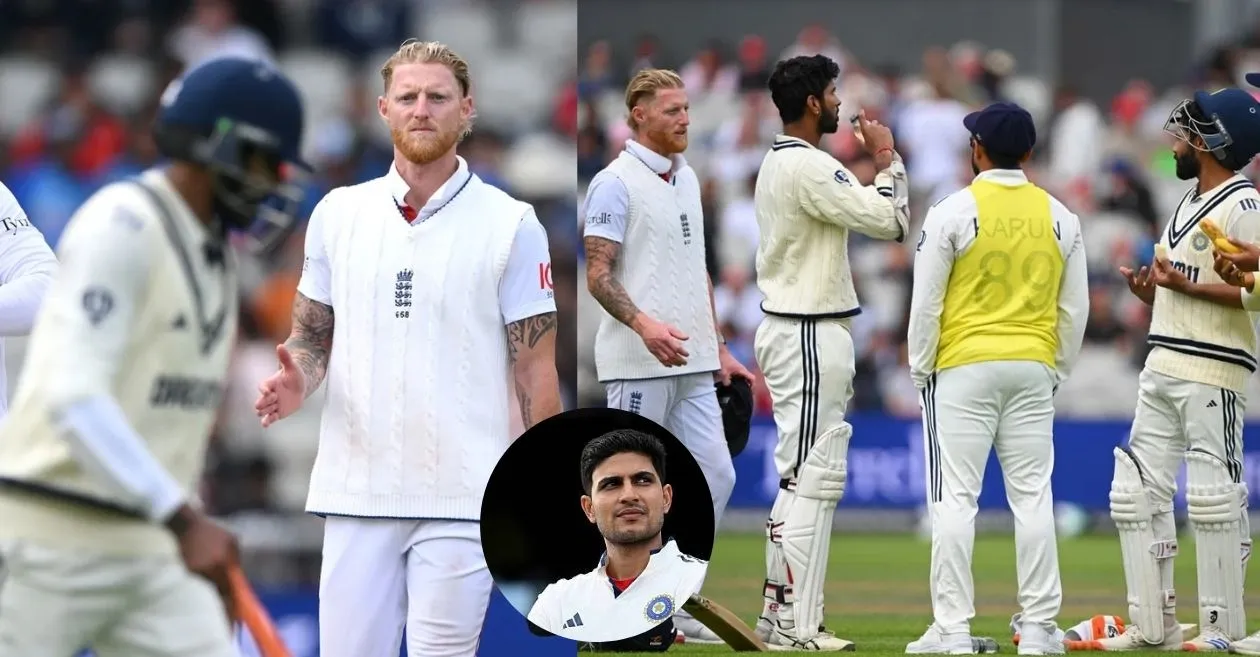Table of Contents
Tensions ran high at Old Trafford as the fourth Test between India and England ended not with a handshake, but with a statement. With just 15 overs left on Day 5, England’s captain Ben Stokes approached Indian batters Ravindra Jadeja and Washington Sundar, proposing an early end to the match—a customary handshake that would officially settle for a draw. The Indians, however, declined, continuing to bat as both Jadeja and Sundar inched ever closer to personal milestones. This decision sparked widespread debate, prompting Indian captain Shubman Gill to explain the rationale behind not accepting the handshake.
Shubman Gill clears the air over not accepting Ben Stokes’ handshake
On Day 5, with India having clawed their way back from a near-hopeless position, both Jadeja and Sundar were on the brink of Test centuries—a feat especially significant given the pressure and resilience required. Sensing the inevitability of a draw, Stokes suggested ending the match early. Instead, Jadeja and Sundar, supported by their captain and the dressing room, opted to continue batting.
In Gill’s words, the choice was about “taking the wicket out of the equation,” focusing on experiencing every ball and taking the match as deep as possible. He further added, “We thought they deserved a century there”.
The result? Both batters reached their respective centuries, earning not just statistics but also the admiration of fans for their grit and determination under fire. This did not sit well with Stokes and some members of the English contingent, sparking a war of words and heated glances on the pitch. Stokes was even seen sarcastically querying, “Do you want to score a hundred against Harry Brook?” as he handed the ball to his part-time bowler in protest.
Also READ: WTC 2025-27: Updated points table after ENG vs IND 4th Test
Spirit of the game debate ignites again after the controversy
The incident quickly transcended the boundary ropes, with past cricketers, commentators, and fans weighing in. Was it in the spirit of cricket to refuse an early draw when the game had already been saved? Or was it a just reward for a heroic comeback forged by two batters under severe pressure?
English pundits suggested they would have accepted the draw if roles were reversed, emphasizing the ethos of Test cricket—playing hard but fair and respecting collective over individual achievements. Indian voices, meanwhile, insisted that batting out for the century, especially after having been under “tremendous pressure,” was about more than a number. As Gill put it, “Every time you walk wearing the whites of the country, there are some jitters. That tells how much I care playing for the country”. For Jadeja and Sundar, reaching triple figures was a deserved conclusion to a display of resilience and national pride.
In the aftermath, the handshake—or lack thereof—became a symbol of the broader battle between tradition and ambition in the game’s modern era. The Old Trafford drama, driven by two centuries and one rejected handshake, will live long in memory as a moment when personal milestones and team spirit converged, and Test cricket’s enduring complexity was laid bare for all to debate.
